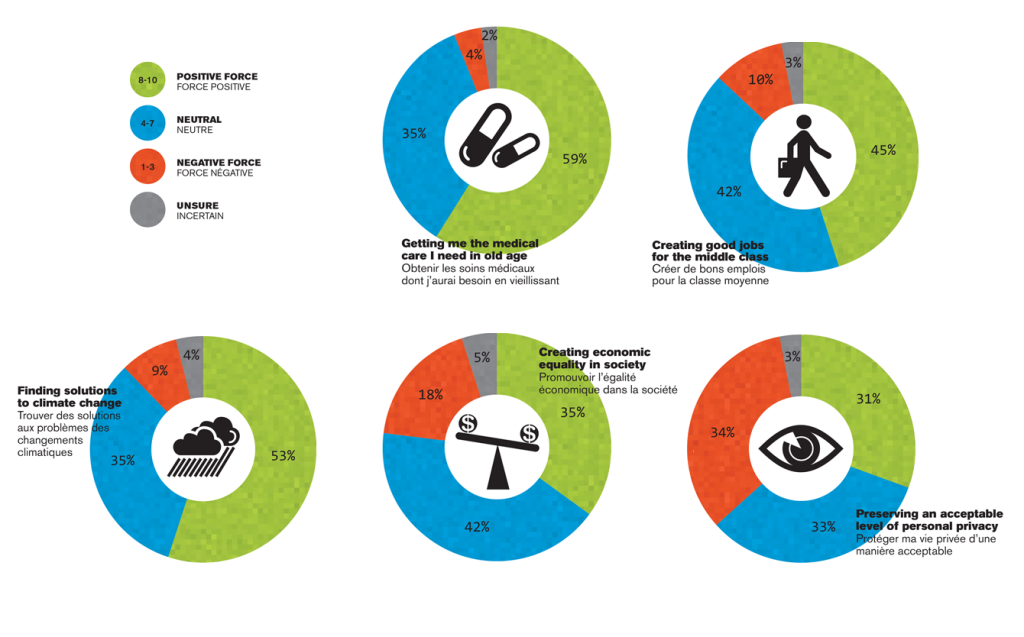
We see — mostly — as wearing a white hat. Many of us associate it with advances that make our lives more fun and efficient, with the prospect that there may even someday be a device to solve society’s problems, from delivering better health care to reducing pollution.
But what about the down side? Sure, we can now communicate with anyone from anywhere, but that digital trail is also ripe for exploitation by companies that use it to push advertising at you, and also by governments seemingly intent on harvesting every bit of information they can get on you.
With Nanos Research, Policy Options set out to discover how Canadians feel about technology. Do they see it as a force for good in society, or do they see it in a more negative light? The research results suggest “a cautionary tale,” says Nik Nanos, chair of Nanos Research Group. The majority see technology as helpful on broad social issues, such as providing us with the medical care we need in old age, finding solutions to climate change and creating jobs for the middle class. But people are more leery of technology when it comes to preserving their personal privacy.
“Our general default on technology is that it’s a good thing,” Nanos says. “We see technology as a way to eventually solve our problems related to health and the environment. The one dark cloud is technology’s personal implications,” he says. “We’re technology optimists in the big picture. But when it comes to our personal lives, we worry.”








